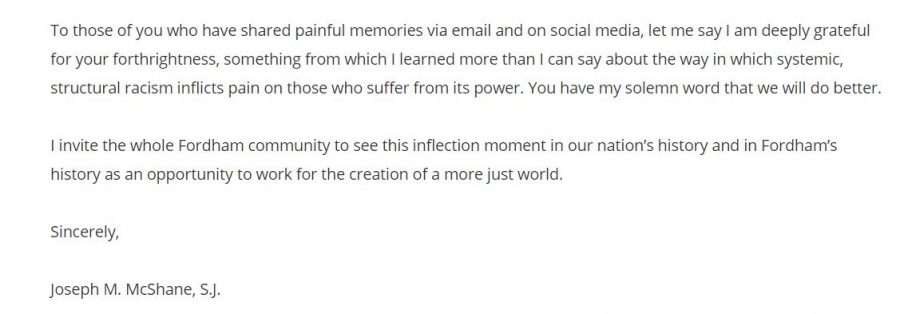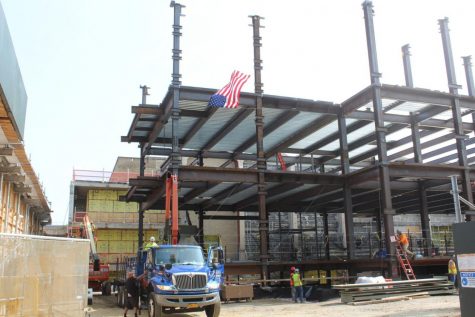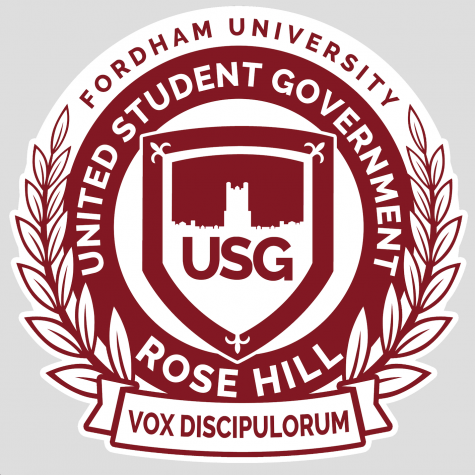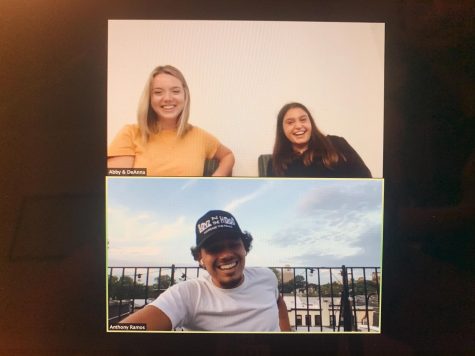Fordham Faculty Participate in National Scholar Strike
macke
The Scholar Strike was inspired by the similar strike initiated by NBA and WNBA players who stopped playing briefly following the muder of Jacob Blake. (Mackenzie Cranna/The Fordham Ram)
September 9, 2020
Scholar Strike is happening at Fordham this week on Tuesday, Sep. 8 and Wednesday, Sep. 9. This movement calls on scholars to refrain from their usual work and instead help raise awareness of and prompt action against racism, policing, mass incarceration and more.
Scholars around the country are pausing usual activity and instead focusing on work that draws attention to the social justice issues that have been in the spotlight throughout 2020.
The movement was inspired by the NBA and WNBA strikes from a few weeks ago, according to an article written by Anthea Butler, Ph.D., an associate professor of religious studies and African studies at the University of Pennsylvania.
“I would be down as a professor to follow the NBA and strike for a few days to protest police violence in America,” Butler tweeted on Aug. 26.
Faculty at Fordham are joining the strike in a variety of ways with the aim of pausing usual activities and allowing those days to be focused on direct action, teaching and learning about systemic anti-Black racism in America and racial justice more broadly, according to an email Lewis Freeman, a professor in the communication and media studies department, sent to his students.
On Sept. 8 and 9, there are multiple Zoom sessions where attendees view a short video and then hear from a roundtable of panelists from various areas of the university. All sessions are open to all members of the Fordham community.
The first session on Tuesday was called “Perspectives on Religion and Racism” and was hosted by Renaldo Alba, associate director of the Collegiate Science and Technology Entry Program (CSTEP), and Jeannine Hill Fletcher, a professor in the department of theology.
The second session, called “The University in the Work of Racial Justice,” was hosted by Lauri Goldkind, an associate professor in the Graduate School of Social Service and Kathryn Reklis, an assistant professor in the department of theology.
Today’s first session, “Justice Systems and Anti-Black Racism,” is at 10 a.m. and is hosted by Lori Wolff, Ph.D., a professor in the Graduate School of Education, and Cristina Traina, a professor in the department of theology.
The second session at 3 p.m. is called “The Role of Scholars in the Work of Racial Justice,” hosted by Kimberly Hudson, Ph.D., an assistant professor in the Graduate School of Social Service, and Jeanne Flavin, a professor in the department of sociology.
“Re-imagining Schooling in the Wake of COVID-19: How Can We Make our Online Schools Anti-racist?” at 3:45 p.m. is a conversation between the New York City Department of Education, Jane Bolgatz, GSE associate dean for Academic Affairs and Clarence Ball III, a professor in the Gabelli School of Business.
The national movement, #ScholarStrike, also offered 10-minute YouTube “teach-ins” on their website throughout these two days. The hashtag #ScholarStrike was used on social media to share information on racism, policing, mass incarceration and other issues of racial injustice in America.












If you want a picture to show with your comment, go get a gravatar.